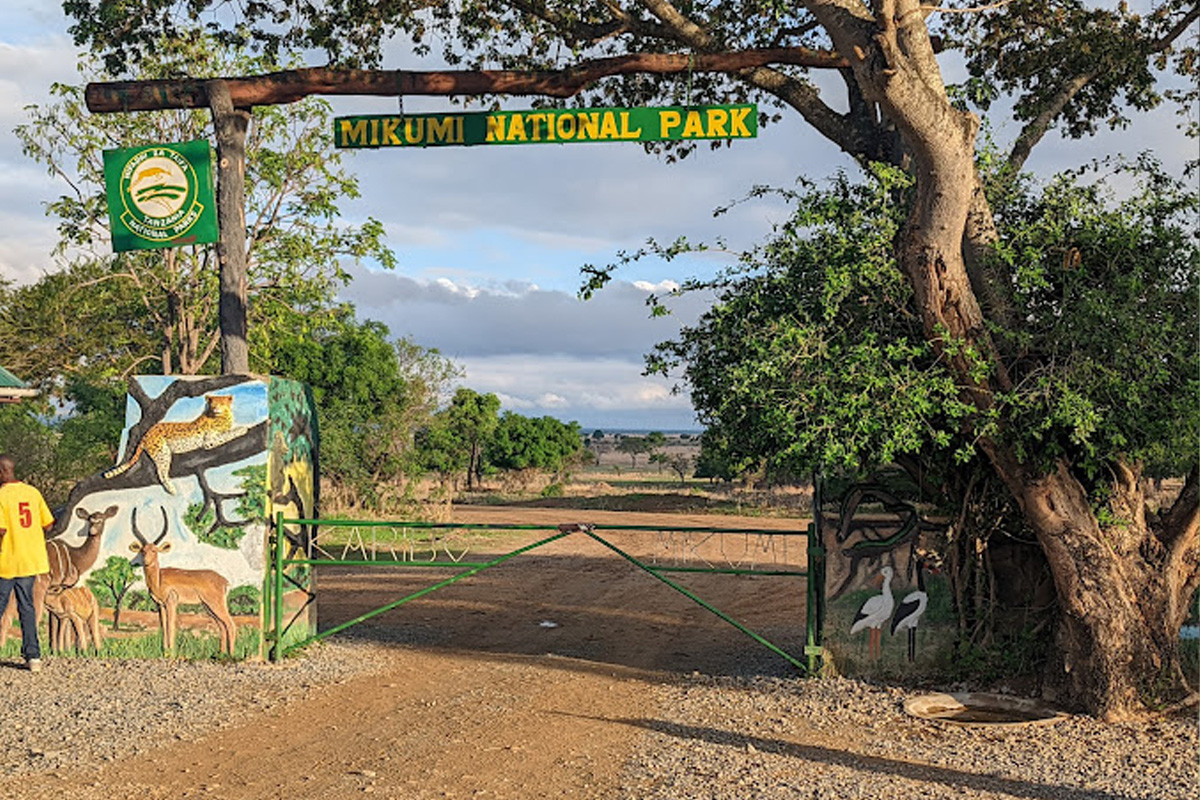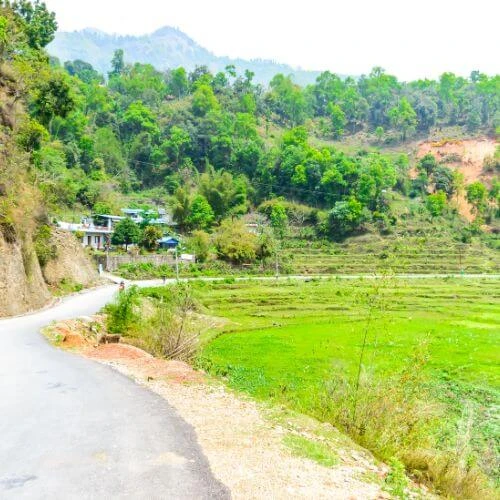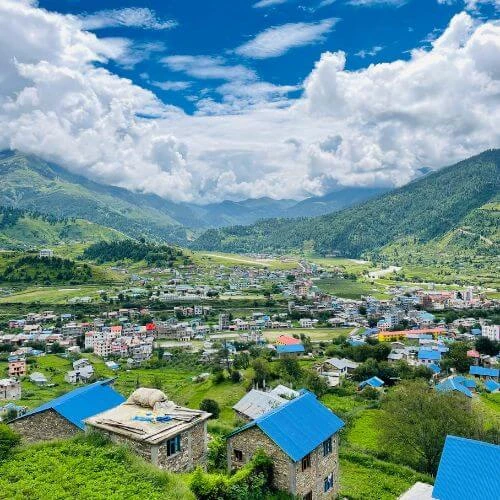Nyerere National Park
Nyerere National Park offers some of the best Tanzania safari holidays and is the largest and most natural park in Africa. The park lies in southern Tanzania and was formerly part of the Selous Game Reserve, which was one of the most well-known wildlife reserves in the world. It was renamed after the first president of Tanzania, Julius Nyerere. The park covers more than 30,000 square kilometers and provides tourists with an opportunity to experience a true African safari without crowds of tourists.
The park is home to several wild animals. Visitors can witness the Big Five—lion, elephant, leopard, buffalo, and rhino—and wild dogs, giraffes, zebras, hippos, crocodiles, and more than 440 bird species. It is renowned for having extensive numbers of elephants and healthy lion populations.

You can explore Nyerere in many different ways. You can engage in game drives, walking safaris, and boat safaris on the Rufiji River, which runs through the park. This gives you a chance to see the animals from different points of view.
Ngorongoro Conservation Area
The Ngorongoro Conservation Area is the most famous Big Five safari destination in Tanzania. It is located in northern Tanzania and was once part of the greater Serengeti National Park before it was set aside as a conservation area in its own right in 1959. It is now a UNESCO World Heritage Site with a unique combination of wildlife conservation and traditional Maasai culture, with indigenous people still living and grazing cattle inside the park.
The main attraction is the Ngorongoro crater safari, which is the world's largest intact volcanic caldera. This natural wonder is 600 meters in depth and harbors over 25,000 animals. Visitors often see lions, elephants, zebras, buffalo, and the rare black rhino. The crater is also famous for spectacular birdlife, especially flamingos at Lake Magadi.

Beyond the crater, there are forests, lakes, and grasslands. It also touches the Serengeti, so animals freely migrate from here to there. You may visit Olduvai Gorge as well, one of the greatest archaeological sites on earth.
Serengeti National Park
Serengeti National Park is one of the world's most famous safari parks and is often considered the best wildlife safari in Tanzania. Located in northern Tanzania, it contains about 14,750 square kilometers of grasslands, woodlands, and river forests. The park is characterized by vast open plains and a huge diversity of wildlife. In 1981, it was declared a UNESCO World Heritage Site and is best known as the "home of the Great Migration."
Over two million wildebeests, zebras, and gazelles move yearly across the Serengeti in search of new water and grass. Serengeti safari tours offer a chance to witness one of the greatest natural phenomena in the world, the Great Migration, a spectacular event that attracts thousands of tourists every year. Additionally, lions, leopards, elephants, cheetahs, giraffes, and more than 500 types of birds reside in the park.

Tarangire National Park
Tarangire National Park is a relatively lesser-visited safari park located in northern Tanzania, some 120 kilometers from Arusha, and covering an area of 2,850 square kilometers. The park got its name from the Tarangire River that passes through it and provides water to the animals during the dry season.
Tarangire has massive elephant herds and baobab trees. Between June and October, when the dry season starts, there are a lot of animals that assemble by the river, such as wildebeests, zebras, buffalo, giraffes, impalas, and elephants. Lion and leopard predators can be seen. The park is popular with bird watchers, with over 500 species recorded.

Unlike the open plains of Serengeti, Tarangire features savannahs, woodlands, and swamps, providing a contrasting safari experience. It is calmer and less crowded, thus suitable for visitors who seek to escape a crowded safari.
Lake Manyara National Park
Lake Manyara National Park is a Tanzanian safari park located in northern Tanzania, covering about 330 square kilometers. It is situated at the base of the Great Rift Valley cliff and consists of diverse ecosystems like forests, plains, and the lake itself.
The park is renowned for lion tree-climbing, and this is an uncommon sight to see on a Tanzania safari trip. Among the other tourist attractions are elephants, giraffes, zebras, buffalo, and baboons. Over 400 species of birds exist, with flamingos seen in the lakes.

Lake Manyara offers a variety of habitats, from the dense groundwater forest at the entrance to the park to open plains and wetlands, providing great game driving opportunities. The park also provides breathtaking views of the lake and the Rift Valley. It's a perfect place for a short safari, especially during the dry season (June to October), when animals gather around the lake.
Lake Tanganyika
Lake Tanganyika in western Tanzania is the second-deepest and second-largest freshwater lake in the world by volume, an outstanding location for nature and wildlife enthusiasts. Tanzania facts you have never heard of include that even though it is not on the main safari circuits, Lake Tanganyika offers a peaceful adventure that combines scenic beauty with a diverse ecosystem.
Tanzania, Burundi, the Democratic Republic of the Congo, and Zambia all share the lake. Its clear waters are home to a variety of wildlife both along and in the lake. The shoreline of the lake has forests, sandy beaches, and rocky shores that are home to animals like hippos, crocodiles, and a variety of birdlife. The lake is also famous for its prolific aquatic life, such as colorful fish like cichlids, making it a perfect spot for diving and snorkeling.

In addition to the wildlife, Lake Tanganyika offers a cultural experience of the local people who inhabit villages along its coastline. The tourists are able to interact with the people in an attempt to understand their culture and comprehend how their existence is dependent primarily on the lake.
Arusha National Park
Only a short drive from the city of Arusha lies the stunning safari destination known as Arusha National Park, which is situated in northern Tanzania. Although it is one of the smaller parks, approximately 137 square kilometers, it offers a unique and varied landscape, which makes it ideal for those who wish to enjoy a peaceful safari tour in Tanzania.
It is renowned for its spectacular landscapes, including the magnificent Mount Meru at 4,566 meters. It hosts diverse ecosystems that range from lush rainforests to open grasslands and swamps. There is also the Ngurdoto Crater, or the "Little Ngorongoro," with its breathtaking views and rich wildlife.
Arusha National Park contains animals like giraffes, zebras, buffalo, monkeys, and flamingos. It does not support the Big Five, but it is a great destination for birdwatching since over 400 species have been recorded. Walking safaris as well as traditional game drives are also offered by the park, and thus individuals can have a close experience with nature.

The dry season (June to October) is the best time to visit, when wildlife is more easily observed. It's regularly paired on safari itineraries with Serengeti, Ngorongoro, and Tarangire National Parks to offer a peaceful and scenic start to any safari.
Gombe National Park
Gombe National Park is a small game reserve on the coast of Lake Tanganyika in western Tanzania. Famous for chimpanzees, Gombe is one of the most important primate research sites, due to the work of Dr. Jane Goodall, who studied chimps here for over 50 years.
Although it is one of Tanzania's smallest national parks, spanning only 52 square kilometers, it is abundant in biodiversity. Gombe is home to 100-150 chimpanzees that live in the forested valleys and hills. Visitors can trek through the forest to observe these creatures in their natural habitat. Monkeys, baboons, bushbucks, and other bird species are some of the other animals found within the park.

With its tropical rainforests, streams, and expansive views of Lake Tanganyika, the park's landscape is stunning. Gombe is a good eco-tourism destination, offering guided tours to discover chimpanzee behavior and conservation.
Mikumi National Park
Mikumi National Park is an easily accessible safari park in the very heart of Tanzania, just a few hours' drive from Dar es Salaam, and offers an affordable safari in Tanzania. The park, which is part of the broader Selous Game Reserve landscape and spans over 3,230 square kilometers, is well-known for its diverse species and breathtaking landscapes.
This national park is described as being like that of the Serengeti since it has open savannahs and large animal herds. There are elephants and lions, giraffes, zebras, and buffalo, which one gets to view when visiting. Mikumi also has hippos and crocodiles in abundance, especially when close to the Mkata River. The park is home to around 400 different types of birds.

The safari experience at Mikumi is less congested and packed than in other popular Tanzanian parks. It's ideal for tourists with limited time or those who want a peaceful alternative. The park offers stunning game drives with the opportunity to spot wildlife in their natural environment.
The best time to watch wildlife is during the dry season (June to October), when animals congregate around waterholes and are easily visible. Mikumi is also a good stopover for tourists traveling to or from the Selous Game Reserve or Zanzibar.
Ruaha National Park
With an area of over 20,226 square kilometers, Ruaha National Park is one of Tanzania's biggest and most isolated parks. The park offers a less populated and authentic Tanzania jungle safari experience. The park lies in the middle of Tanzania's southern circuit and is highly praised for having varied wildlife, dramatic scenery, and being a great place to visit for adventure and nature enthusiasts.
Ruaha has one of Tanzania's largest elephant herds. It is home to the Big Five, cheetahs, giraffes, hippopotamuses, and various antelope species. The park is a birdwatcher's paradise, with over 570 species recorded.

The landscape is varied, with savannas, forests, rivers, and valleys. The Great Ruaha River runs through the park, attracting many animals during the dry season, hence making it an ideal destination for game viewing. The remoteness of Ruaha is one of its attractions, with peaceful game drives with few to no other tourists. Best is during the dry season (June to October) when wildlife concentrates around water points.
Conclusion
Tanzania has the best wildlife activities in the world, from the famous Serengeti and spectacular Great Migration to peaceful Ruaha National Park. They can experience the Big Five, wonderful animals, and stunning views like Ngorongoro Crater and Lake Tanganyika. Whether on a game drive, walking safari, or boat safari, Tanzania’s three safari circuits- Northern, Southern, and Western- provide options for both busy and peaceful adventures. With its incredible natural beauty and rich wildlife, Tanzania remains a top safari destination, offering affordable options year-round.



 based on 3 reviews
based on 3 reviews












